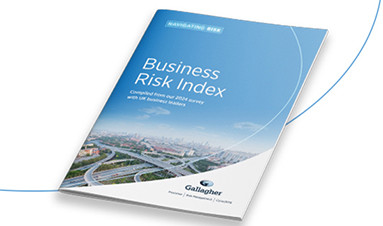An analysis of the most pressing concerns based on insights from 1,000 UK business leaders.

The construction industry is known for its physically demanding nature, long working hours, and high-pressure environments. While these aspects are often discussed, one crucial aspect that is often overlooked is mental health. The construction industry has a significant impact on the mental well-being of its workers, and it is time to break the silence surrounding this issue.
Construction workers face a unique set of challenges that can take a toll on their mental health. The physically demanding nature of the job, coupled with long hours and tight deadlines, can lead to chronic stress and fatigue. Additionally, the high-risk nature of the industry, with the potential for accidents and injuries, can create anxiety and fear among workers.
One of the main factors contributing to mental health issues in the construction industry is the prevailing culture of silence and stigma surrounding mental health. Traditionally, construction workers have been expected to be tough and resilient, often dismissing any signs of vulnerability. This culture discourages workers from seeking help or talking about their struggles, leading to a cycle of suffering in silence.
The consequences of neglecting mental health in the construction industry are significant. Studies have shown that construction workers are at a higher risk of developing mental health disorders such as depression, anxiety, and substance abuse. The suicide rate among construction workers is also alarmingly high, with some studies suggesting that it is the highest among all industries*.
Recognising the importance of mental health in the construction industry is the first step towards addressing this issue. Employers need to create a supportive and inclusive work environment that encourages open conversations about mental health. This can be achieved by implementing mental health awareness programs, providing training for managers and supervisors on how to identify and support workers who may be struggling, and offering access to mental health resources and counselling services.
Furthermore, it is crucial to break the stigma surrounding mental health in the construction industry. This can be done by promoting mental health awareness campaigns, sharing personal stories of construction workers who have overcome mental health challenges, and fostering a culture of empathy and understanding. By normalising conversations about mental health, workers will feel more comfortable seeking help and support when needed.
In addition to the efforts made by employers, individual workers also play a vital role in taking care of their mental well-being. It is essential for construction workers to prioritise self-care, such as getting enough rest, maintaining a healthy work-life balance, and seeking support from friends, family, or mental health professionals when needed. Engaging in stress-reducing activities, such as exercise or hobbies, can also help alleviate the pressures of the job.
The construction industry has made significant strides in improving safety standards and physical well-being. It is now time to extend the same level of attention and care to mental health. By breaking the silence surrounding mental health in the construction industry, we can create a healthier and more supportive work environment for all workers.
In conclusion, mental health in the construction industry is a pressing issue that needs to be addressed. The physically demanding nature of the job, coupled with long hours and high-pressure environments, can take a toll on the mental well-being of workers. By fostering a culture of openness, support, and understanding, employers and workers can work together to break the stigma surrounding mental health and create a safer and healthier industry for all.

